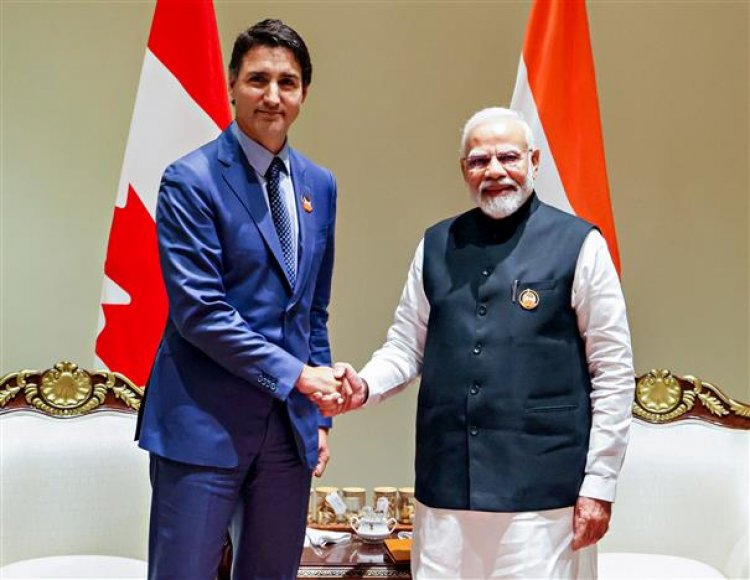India - Canada: A Tale of Three Punjabs
STORIES, ANALYSES, EXPERT VIEWS

There are three Punjabs, explains Pramod Kumar (chairperson, Institute for Development and Communication - IDC, Chandigarh) — Diaspora Punjab (settled in Canada, US, UK and Europe), Indian Punjab, and Pakistan Punjab. Dramatically divergent views exist in a section of diaspora Punjab and Indian Punjab.
Diaspora Punjab
In Diaspora Punjab, “the radical groups’ political narrative resonates with the Khalistan slogan and divisiveness on communal lines.
“They function as an exclusive group. They are not integrated into Canadian society even as, politically, they are well entrenched and hold the balance of power, as in the present regime. The New Democratic Party (NDP) led by Jagmeet Singh is a pro-Khalistan group and is the fourth largest party which occupies a balancing position in the present coalition government.”
In Diaspora Punjab, writes Kumar “articulations of a distinct religious identity co-exist with assertions for a separate Khalistan. The younger generation of Canadian Sikhs has been socialised into the politics emanating from the tragic events of the 1980s. These events have been used as a source of justification for a politics of vengefulness. Fringe groups are actively engaged in making the brutal legacy go on simmering and regenerating itself.”
The Indian Punjab
In Indian Punjab, however, “history has moved on. Operation Blue Star became a marker of the need for respecting religious groups instead of becoming a symbol of social divisiveness, the politics of religious dominance or assertion of a theocratic Sikh state. The hurt felt by the members of the Sikh community after four decades of churning seems to have transcended the boundaries of religion. In fact, there is a wider consensus on ensuring justice for the Sikhs killed in 1984.”
Unlike Diaspora Punjab, “Indian Punjab has nurtured a secular Punjabi identity which has coexisted with assertions of religiosity. For instance, 83.87 per cent of the Punjabi Hindus, as per the 1991 census, mentioned Punjabi as their mother tongue. The adoption of the Moga declaration by the SAD, emphasising Punjab, Punjabi and ‘Punjabiat’ (Punjabi psyche / culture), was a testimony to the space available for a secular Punjabi identity…..”
In Diaspora Punjab, the ruling establishment has provided space to the Sikhs
On the other hand, “articulation of Punjabi identity is yet to take off in Canada, and the diaspora remains either Sikh or non-Sikh. As a result, in Diaspora Punjab, the ruling establishment has provided space to the Sikhs, which has been appropriated by the vocal section of Khalistan separatists who continue to propagate a politics that advocates revenge for the ‘hurt Sikh psyche’. The political alliances are constructed with these elements, which is a death knell for liberal politics.”
In this context, Kumar writes “the political controversy between the Canadian and Indian political establishments over the killing of Hardeep Singh Nijjar, threatens to add new dimensions to the ongoing separatist movement of the fringe. The issue of Khalistan had remained largely specific to Punjab and India in the 1980s. Now, the political narrative is being shaped by Diaspora Punjab, the separatist demand of a minuscule section is being internationalised. This is a matter of serious concern."
















